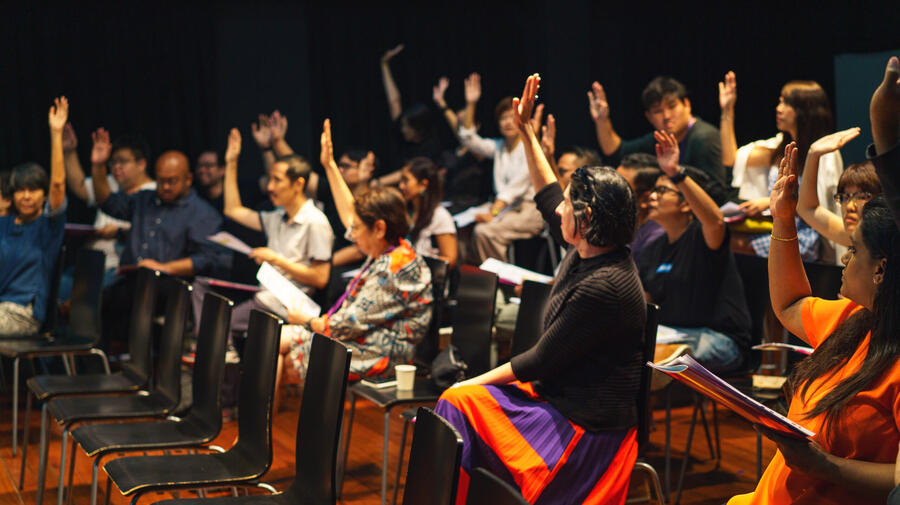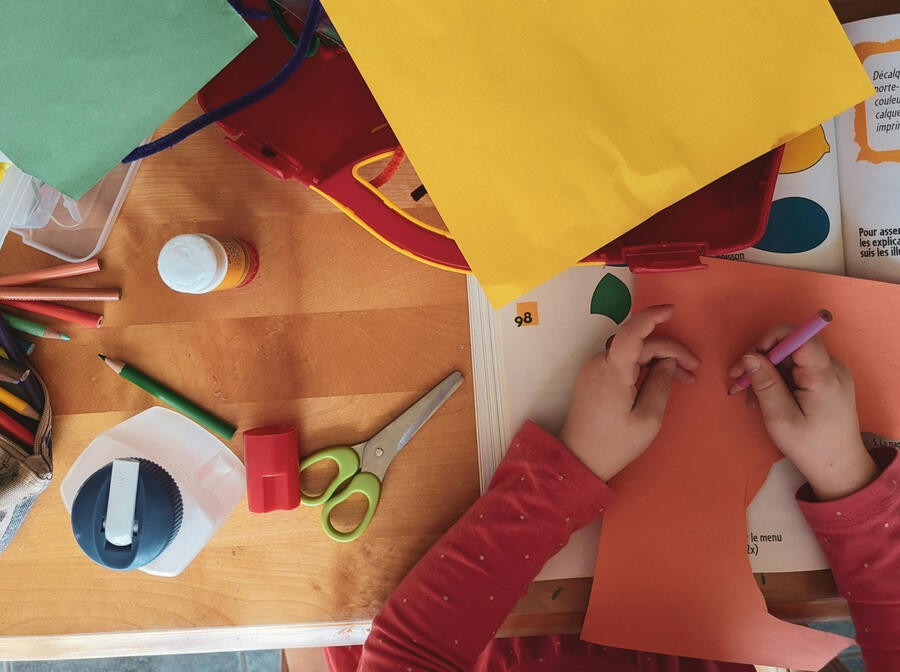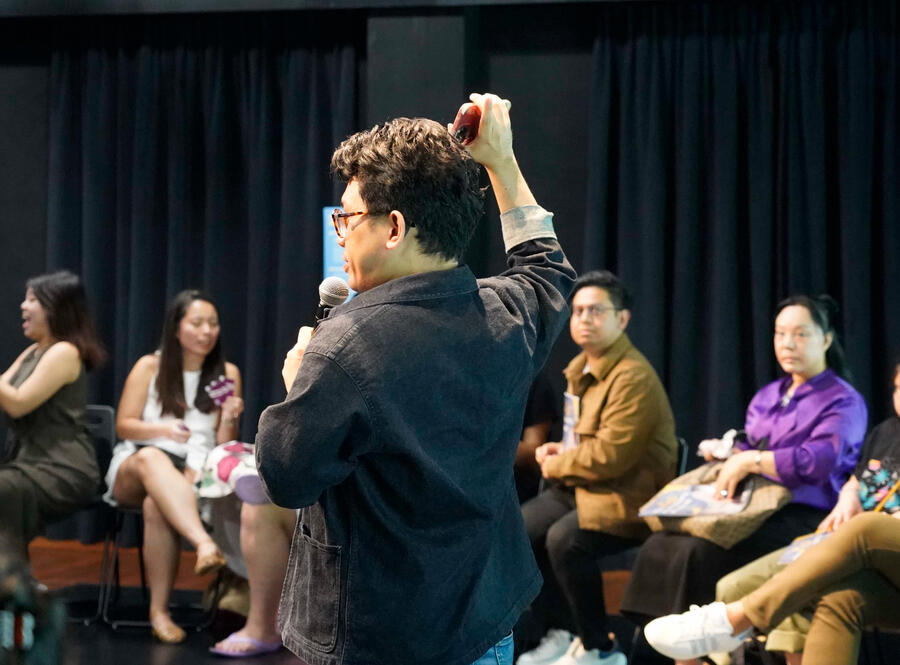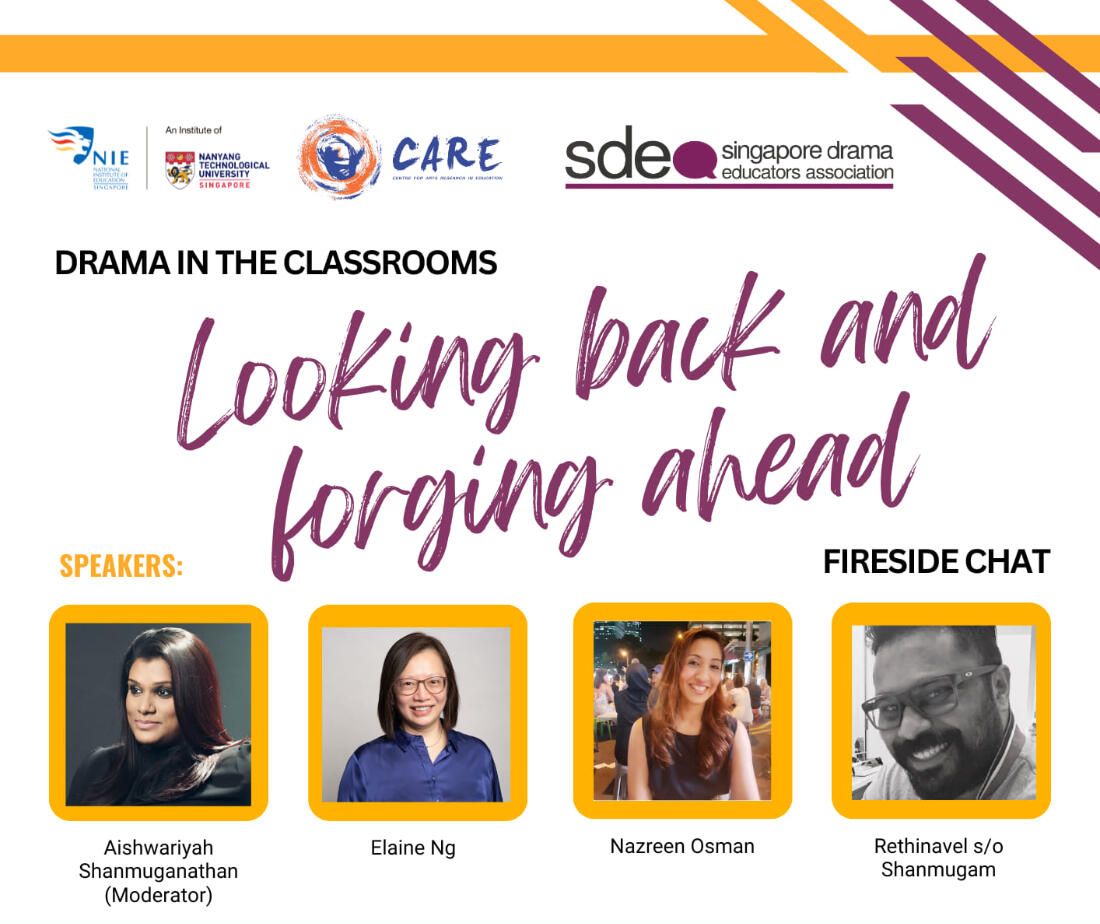
Drama in Curriculum SG
Advocating for Drama Education to have a greater presence in
Singapore's primary school curriculum.
Latest
20th Sep 2024 - Definition of Skillsets in Skills Framework for Arts (Arts Education)Response to parliamentary question on whether there are plans to refine the Skills Framework for Arts (Arts Education) to define skillsets in a more targeted way in relation to specific artforms.Read the full response.
20th Sep 2024 - Success From Reframing of SYF Central Judging as SYF Arts Presentation in Achieving Aims for Students and EducatorsNMP Usha Chandradas in a parliamentary question, asked the Minister for Education (a) whether the reframing of the Singapore Youth Festival (SYF) Central Judging as the SYF Arts Presentation has achieved its intended aims for both students and educators; and (b) if so, what are the factors that are taken into consideration when assessing whether such aims have been achieved.Read the full response.
20th Sep 2024 - Support to improve salaries for arts workersNMP Usha Chandradas in a parliamentary question, asked the Minister for Culture, Community and Youth whether the Ministry has any plans to develop or lead any initiatives to create comprehensive skills and salary guidelines for arts workers so as to ensure that competitive salaries are provided to members of the arts community and to improve talent attraction and retention within the various arts groups.Read the full response.
18th Aug 2024 - National Day RallySpeech by Singapore's Prime Minister Lawrence Wong discussing role play and teaching approaches, extracted from the National Day Rally.
7th Aug 2024:
Adjournment motion on arts education: cultivating creativity in classrooms and communitiesNMP Usha Chandradas has raised her Adjournment Motion on Arts Education: Cultivating Creativity in Classrooms and Communities. In her motion, she cites lessons learnt in discussions with SDEA on the impact of drama, Ang Song Ming (Singapore’s representative at the 58th Venice Biennale) and more, advocating for arts learning to take place in a more “concerted and systematic basis”, that the “planning and implementation of arts education should not be something that is siloed” (based on the UNESCO Framework for Arts and Culture Education). She also shared discussions with arts educators who feel unsupported in schools, reflecting a sense of the de-prioritisation of arts subjects, and the other unique set of challenges faced by arts teachers including not being able to develop their own arts practice, the overburdening of arts teachers with aesthetic responsibilities, and the feeling of being overworked and under-supported. She also highlighted and advocated for the expansion of programmes such as the Artist in Schools Scheme (AISS) and administrative support for such schemes so that more teachers can access it.MOE responded, citing current schemes and programmes like the AISS, and mentorships in enhanced arts programme schools and the SYF. MOE reiterated that they will continue to review the curriculum to ensure its relevance. MOE also agreed that including drama in the curriculum can “build students confidence, communication skills and other important competencies”, citing drama strategies used in different subjects to enrich learning such as through hot seating in English language classes.Watch her adjournment motion which also addresses detailed wall text for public art as well as MOE’s response below.
Our Cause
In response to a parliamentary question by NMP Usha Chandradas (see here in full) , The Ministry of Education stated that they will “continue to review how drama can be used in schools to support the holistic development of students”.Everyone knows Drama is vital and empowering. It builds confidence, curiosity, and cultivates empathy and understanding. It equips young people with the tools to navigate a divisive and ever-changing world, enables more active learning and nurtures social and emotional well-being. Drama creates more holistic and inclusive leaders for the future.Currently, art and music education are provided for all students in primary schools and at the lower-secondary level. We believe drama should be a part of that too, for the holistic development of not just students, but all future Singaporeans.
Share Your Voice
Every voice matters! Share your thoughts, experiences and memories in our community space below. Regardless of whether you're an arts educator, student, or just someone who believes in the difference that Drama Education can make in young lives - We want to hear from you!#DramaincurriculumSG
Resources
Listed are some suggested resources that share valuable input, research and knowledge on the effectiveness of Drama Education. We have collated these resources, to better inform on the importance of including Drama Education in our school curricula in Singapore. The resources listed are solely for the purposes of knowledge sharing and do not belong to SDEA. All credits belong to the authors listed in the individual documents.This list is not exhaustive and we will continuously update it. You can help expand it by providing resources by emailing us [email protected]
Drama is a statutory part of English in the National Curriculum for England (2013). Read here to find out more.
Drama as part of Arts Education is part of the Primary Curriculum Framework in Ireland since 1999.
"National Drama encourages all schools to view Drama as a subject with inherent eff ective pedagogical qualities which impact positively on learners and learning."
(Recognition that) "culture and the arts are integral to the holistic and inclusive development, resilience, and overall well-being of individuals and societies."
Our SG Arts Plan (NAC, 2024) states 'Sustaining Audiences Through Life' as a key priority in building a connected society, citing partnerships with MOE as a possible way to 'nurture audiences from a young age.'
The initial parliamentary question by NMP Usha Chandradas on including drama or theatre studies as part of the core primary school syllabus, and its response.
Why are the arts and sports important to students’ education? Mrs Eugenia Lim, Divisional Director of MOE’s Student Development Curriculum Division 2, offers answers to this question.
A snippet from research newsletter 'Culture Bytes', September 2024. Culture Bytes is an initiative of the Culture Academy Singapore, a division of the Ministry of Culture, Community and Youth.
Campaign Events
Looking Back and Forging Ahead - A fireside chat
Holistic Development of Children through Drama & Classic Literature by William Yip (HK/China)
Award-winning educator William Yip’s session is crafted to empower teachers to use drama as a pedagogical tool to reveal deeper insights within classic children’s literature. This approach not only enriches the understanding of literary works but also promotes the holistic development of children by nurturing their social, emotional, cognitive, and creative abilities through the integration of drama into the learning process.Workshop details
Date: 10 September, 3-5pm
Venue: Goodman Arts CentreLearning outcomes:By the end of this training, teachers will be able to:- Design and implement drama-based lessons that promote the holistic development of children.- Create an inclusive and supportive classroom environment where every child feels valued and encouraged to participate.- Facilitate activities that nurture emotional intelligence, social skills, creativity, critical thinking, and cognitive development.- Inspire students to engage deeply with classic literature, transforming it into a dynamic and relevant part of their educational journey.Teachers will leave the program equipped with the knowledge and skills to use drama as a powerful tool for holistic learning, helping students grow as confident, empathetic, and creative individuals.Suitable For:
- Drama Educators
- Speech and Drama Educators Primary School (and above)
- Language and Literature Teachers
Support SDEA
If you are excited about the work we are doing, and would like more of the work we are doing in this campaign, do consider supporting our cause.Make a Difference to Drama Education in SingaporeSDEA is a not-for-profit Singapore Registered Charity (Institution of a Public Character) and a recipient of the National Arts Council’s Major Company Scheme.Charity Regn No: T02SS0123G
Charity Regn Date: 20 February 2020
Constitution: Society
Date of Establishment: 28 September 2002IPC StatusEffective Date: 29 May 2023 to 28 Nov 2024
A member of Ministry of Culture, Community and Youth






